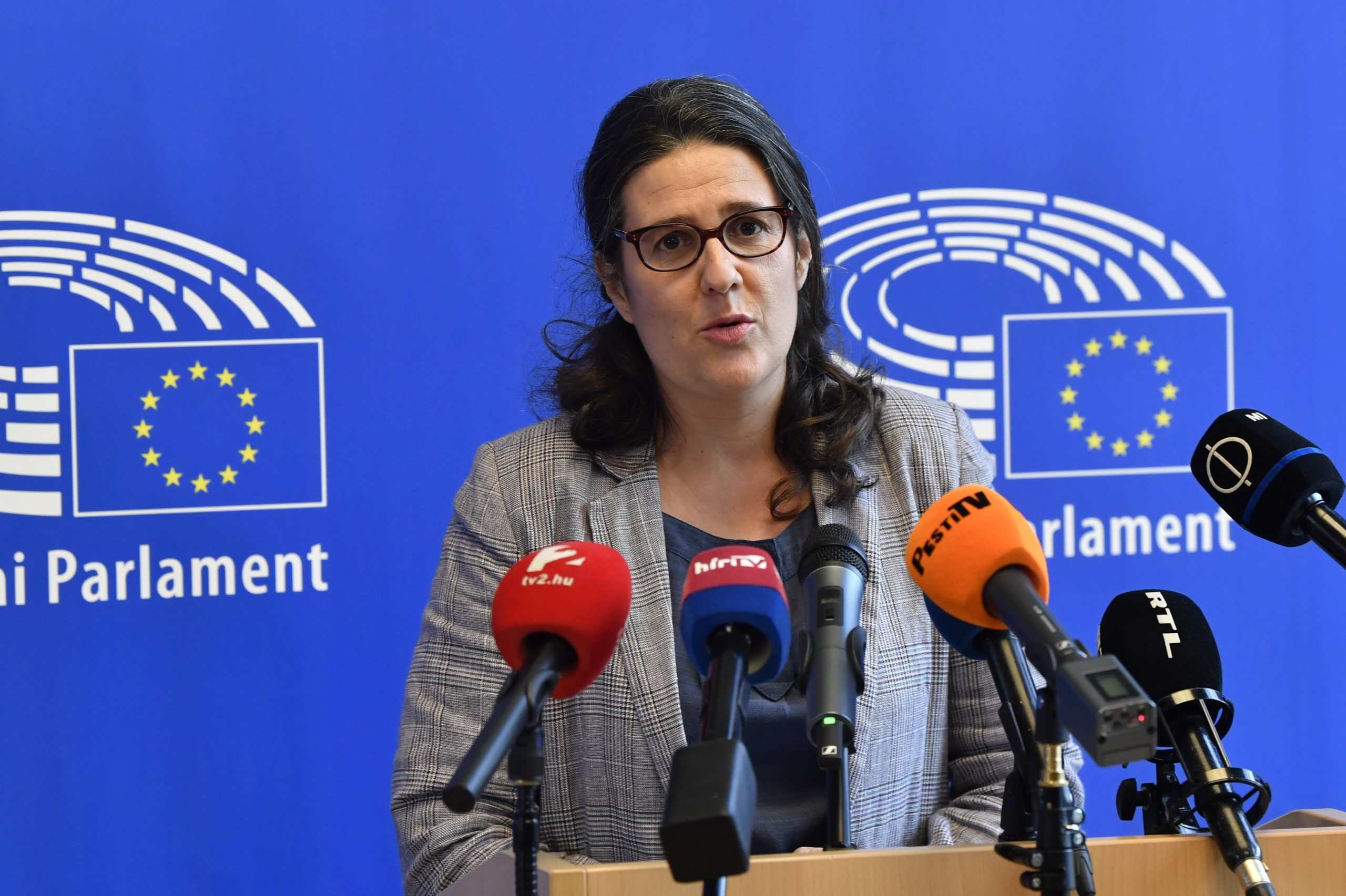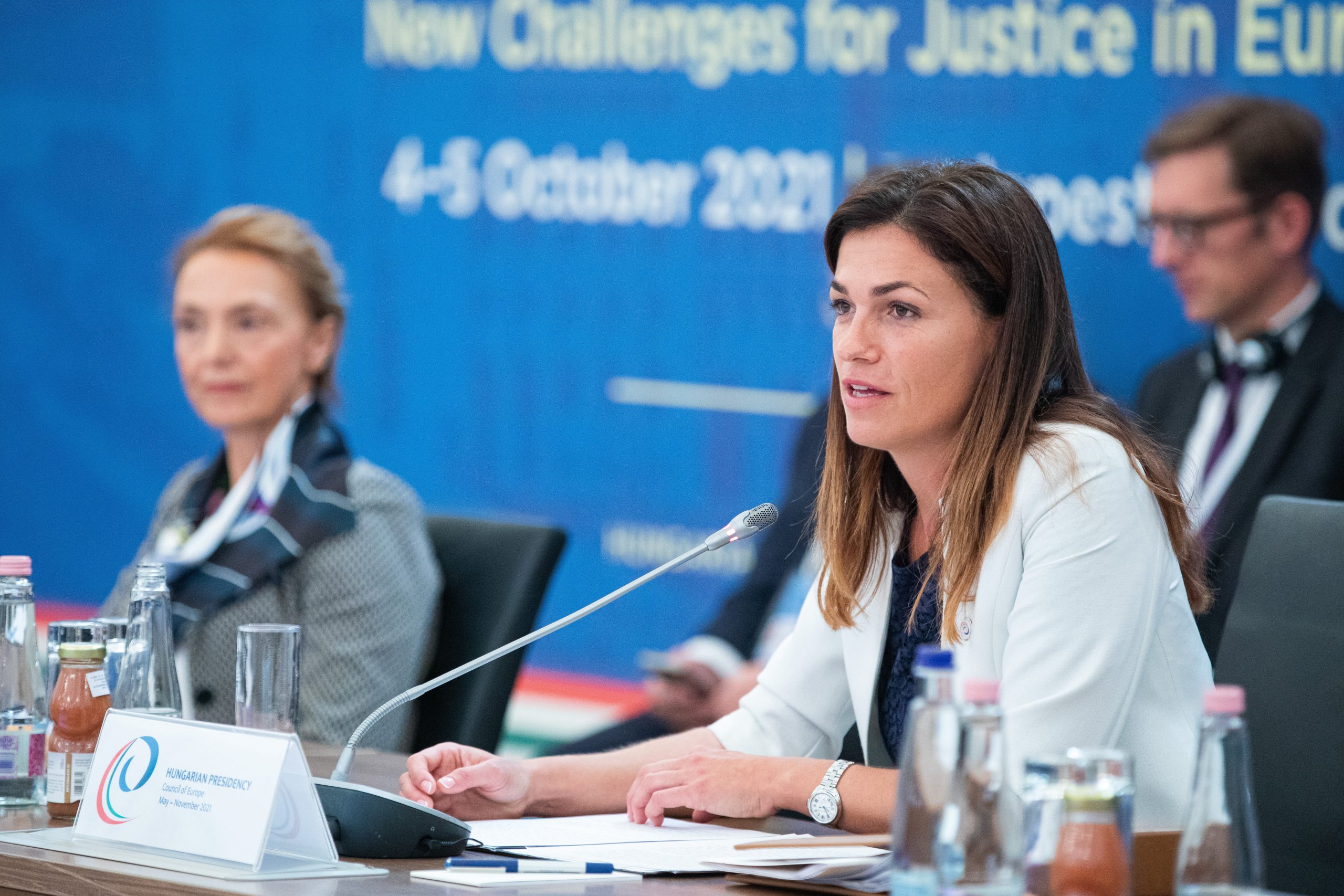
The members of the LIBE delegation held consultations with over a hundred people, and heard many opinions and political views, Delbos-Corfield said.Continue reading

Whereas digitalisation and artificial intelligence offer “the greatest opportunities of our time”, they also present huge challenges to judicial systems, Justice Minister Judit Varga said on Tuesday ahead of a conference of her Council of Europe counterparts.
Both private individuals and businesses rightly expect the authorities to provide fast and efficient services, the minister told journalists in Gödöllő, outside Budapest, ahead of the meeting held as part of Hungary’s presidency of the Council of Europe, adding that this is why electronic services must be expanded. Varga said Hungary was “at the forefront” of the European Union in terms of digitalising its judiciary, as reflected by the European Commission’s judicial scoreboard.
Each EU member has its own solutions to challenges posed by digitalisation and artificial intelligence, she said. “But it’s important to establish minimum standards that will help when it comes to linking those systems” in order to ensure smoothness for citizens doing business in another country, Varga added.
Regarding controls over artificial intelligence in the judiciary, the minister emphasised the importance of data protection and fair treatment while “observing all high human rights guarantees”. Areas in which “the human element must be retained” need to be identified, she added.
The Hungarian justice ministry is working to build a uniform registry of legal entities in order to improve the country’s judicial competitiveness while developing services available through mobile applications — “a certain m-government rather than e-government”, the minister said.
No state can handle the challenges of digitalisation alone, Judit Varga said at the conference. Citizens, she noted, have an ever greater need to access documents online, and the Covid pandemic has heightened this need, she said in her speech to the ministerial conference on digital technology and artificial intelligence entitled New Challenges of Justice in Europe in Gödöllő.
In her English-language speech posted on Facebook, the minister said any initiative that increased the efficacy of judicial cooperation between CoE member states should be welcomed.
With mobile phones, people can access the legal system at the touch of a button, Varga noted, adding that no one should be digitally excluded. Also, the associated risks should not outweigh their benefits, she added.
Even before the pandemic, IT played a big role in Hungary’s legal system, she said. Hungary’s courts already provide electronic access to proceedings, while judges and registered clients can access important information and documents online, saving time and money, Varga added. With remote testimony, people can testify in a separate room, even from abroad, she noted.
Marija Pejcinovic Buric, the CoE’s secretary general, said the CoE had been helping member states apply IT effectively in their judicial systems and introduce electronic procedures since 2000. She noted that the coronavirus pandemic had accelerated the introduction of electronic services, leading to the development of more efficient and transparent judicial systems.
featured image: Judit Varga speaking at the press conference with CoE’s secretary general Marija Pejcinovic Buric in the background; via Balázs Mohai/MTI